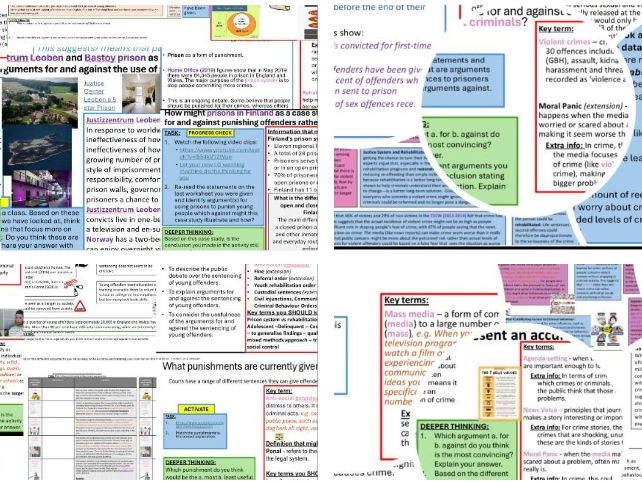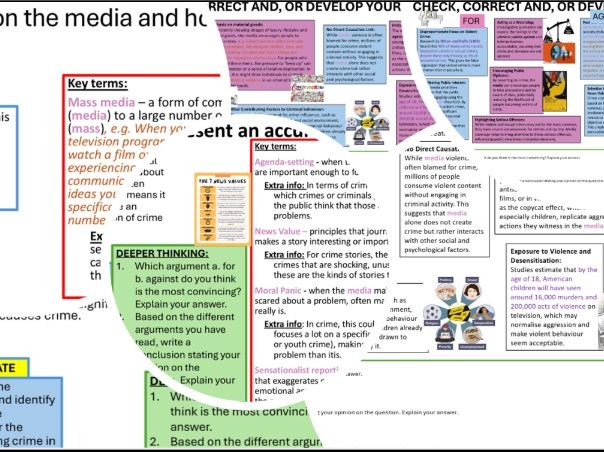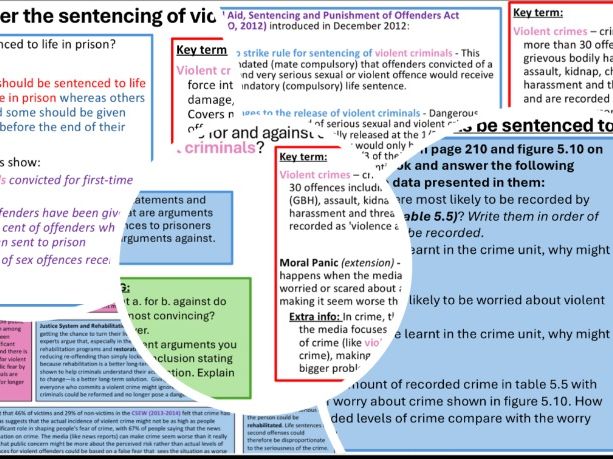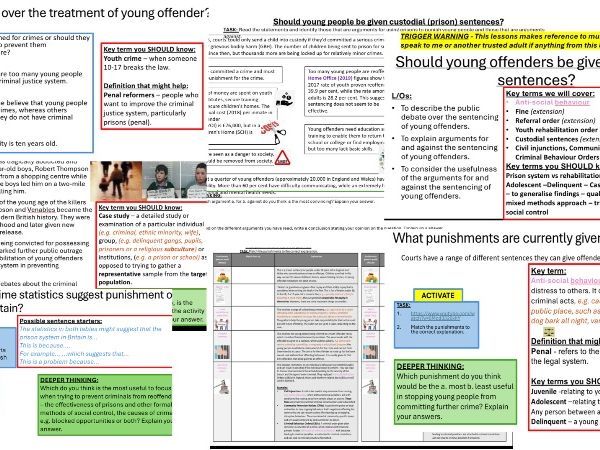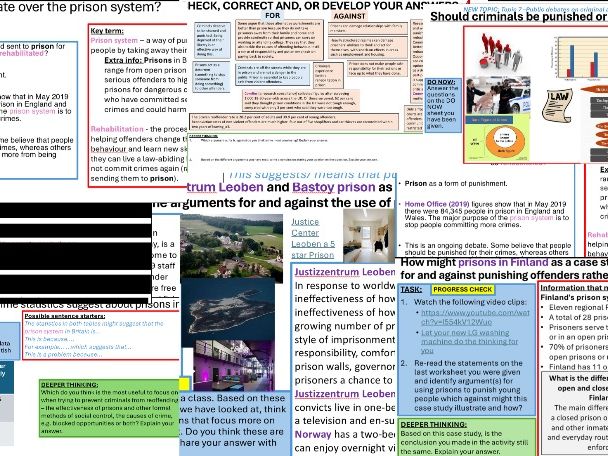**L1 AQA GCSE Sociology: Crime - Debates (Prison vs Rehabilitation):
Detailed lesson with lots of scaffolding based on adaptive teaching that help students understand the public debate over the use of prison system.
Cover the following key terms: Prison system, Rehabilitation
Covers the following sociologists: Home Office (2019)
Key terms you should know: Youth crime – when someone 10-17 breaks the law. Social control – Formal vs informal - social control – Written vs unwritten rules –Formal vs informal methods of social control – Conformity – Agencies and agents of social control vs socialisation – The criminal justice system
Resources can be found at the end of PPT
Examines Justizzentrum Leoben and Bastoy Prison as case studies of prison systems.
Starter recaps content on crime students from the other topics of crime.
Key term and definition sheet for the lesson included
ANSWERS TO MAIN ACTIVITY AND STARTER NCLUDED
**L2 AQA GCSE Sociology: Crime - Debates (treatment of young offenders):
Detailed lesson with lots of scaffolding based on adaptive teaching that help students understand the public debate over the sentencing of young offenders.
Cover the following key terms:
Anti-social behaviour
Fine (extension)
Referral order (extension)
Youth rehabilitation order (extension)
Custodial sentences (extension)
Civil injunctions, Community Protection Notices (CPNs) and Criminal Behaviour Orders (CBOs) (extension)
Covers the following sociologists/Organisations: James Bulger, Home Office 2019,Ministry of Justice in 2018
Key terms you should know: Prison system vs rehabilitation - Youth crime - Juvenile - Adolescent –Delinquent – Case study – Representative sample – to generalise findings – qualitative vs quantitative methods – mixed methods approach – triangulation – Formal vs informal social control.
Resources can be found at the end of PPTKey term and definition sheet for the lesson included
Covers the debate ‘Should young people be punished for crimes or should they be treated in a way designed to prevent them recommitting crime in the future?’
ANSWERS TO MAIN ACTIVITIES INCLUDED
Includes 4 marker research methods (case studies) exam question linked to the question.
Detailed scaffolding included to help students with their answers.
**L3 AQA GCSE Sociology: Crime - Debates (Sentencing of violent offenders):
Detailed lesson with lots of scaffolding based on adaptive teaching that help students understand the public debate over the life sentencing of violent criminals.
Cover the following key terms: Violent Crime, moral panic(extension).
Resources can be found at the end of PPT
Covers the debate - should violent criminals should be sentenced to life in prison or receive a longer time in prison or is his is too harsh and should they be given the chance to be released early before the end of their sentence.?
ANSWER TO MAIN ACTIVITY INCLUDED
Starter requires pages for the AQA GCSE 9-1 Sociology Updated Edition by David Bown.
**L4 AQA GCSE Sociology: Crime - Debates (Media coverage of crime):
Detailed lesson with lots of scaffolding based on adaptive teaching that help students understand the public debate
Cover the following key terms: mass media, Agenda-setting, News Value, Moral Panic, Sensationalist reporting, Deviancy amplification spiral.
Covers the following sociologists: Ferguson, Anderson.
Resources can be found at the end of PPT
Covers two debates on the media’s coverage of crime:
Does the media provide accurate picture of crime?
Does the media cause crime?
Includes key term and definition sheet for the lesson.
ANSWERS TO MAIN ACTIVITY INCLUDED
Includes an ‘identify’ and ‘describe’ 3 mark exam style question
Something went wrong, please try again later.
This resource hasn't been reviewed yet
To ensure quality for our reviews, only customers who have purchased this resource can review it
to let us know if it violates our terms and conditions.
Our customer service team will review your report and will be in touch.
